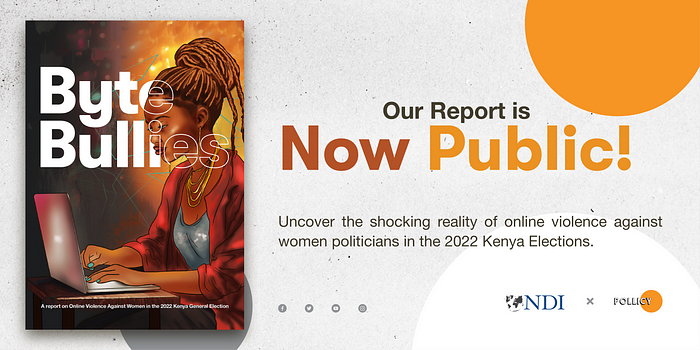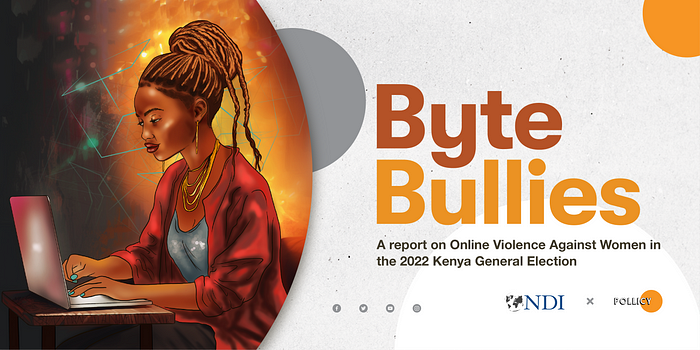Women in Kenyan Politics: Can the Digital Age Level the Playing Field?

In the ever-evolving landscape of digital technology, we find ourselves at a juncture where political participation and advocacy are not only about physical campaigns but also the vast digital realm that has the power to reshape the political narrative in Kenya. In this blog, we delve into the world of women in Kenyan politics and the strides they are making in the digital age.
Women in Kenyan Politics: The Digital Age Catalyst
The digital age has ushered in an era of transformation, redefining the way we engage with democracy and information. This transformation also offers a unique opportunity to bridge the gender gap in politics, giving women a more prominent voice in shaping the nation’s future. While history has often dictated the terms of engagement, today, technology serves as a formidable equalizer.
Kenyan women in politics are leveraging technology to expand their reach, connect with their constituents, and sidestep traditional communication barriers that have marginalized their voices for so long. The power of anonymity online and the freedom of expression have paved the way for an open and level political discourse, allowing women to express their views without fear of discrimination.

However, it’s important to note that the digital world isn’t without its challenges. The same platforms that empower women in politics can also perpetuate oppressive practices, such as online harassment and the spread of extremist ideologies. This underlines the importance of proactive measures and regulations to create a safer digital environment.
Unraveling the Gender Disparities
In a continent where women in politics are underrepresented, the digital epoch has the potential to exacerbate existing inequalities. The historical underrepresentation of African women in technology further disconnects them from the avenues of governance. Bridging this divide necessitates the establishment of uncensored digital infrastructure, providing internet access in communities and schools, particularly in regions where it remains a luxury.
Digital Advocacy and the Byte Bullies
Digital participation offers women in politics remarkable opportunities, but it comes with its set of challenges. Our new report with support from NDI titled “The Byte Bullies” sheds light on the alarming issue of online violence against women in politics (OVAW-P) within the Kenyan political landscape. The report underscores that while the use of social media platforms is integral to engaging with voters and constituents, there is a significant disparity between men and women politicians.
A closer look at the statistics reveals that 93% of male candidates actively used Facebook accounts during the 2022 campaign period, whereas only 80% of women politicians did the same. On Twitter, 49% of women’s accounts had fewer than five tweets per month during the campaign. This disparity is not just about numbers; it’s about the substantial hurdles women face in the digital realm.
Online violence against women in politics (OVAW-P) amplifies the challenges faced by women leaders in their political careers. It exposes the widespread harassment experienced by women in politics on digital platforms. During the report data collection process, a member of the Kenya Women Parliamentary Association (KEWOPA) shared her experience, recounting how a network of men orchestrated attacks against women online during campaigns, using platforms like WhatsApp and Telegram to strategize.
Cultural and political factors are significant contributors to this digital harassment, obstructing women’s active participation in politics and leading to offline consequences. The gender-based abuse that women politicians endure online violates their right to free expression and engagement. This is often orchestrated by organized troll armies with the aim of silencing women and discouraging them from participating in politics.
https://www.youtube.com/watch?v=n4KMyvwRPgI
Building a Feminist Cyberspace
The Byte Bullies report makes it clear: we need robust interventions and a nurturing environment that encourages women’s participation in politics, particularly in the digital era. The report delves into the impact of digital technologies on democratic processes while acknowledging the repressive attributes inherent in the online realm.
To address online violence, Pollicy and other feminist tech advocates recommend an overhaul of trust and safety measures on digital platforms. Creating a culture of digital safety and upskilling is paramount. Governments should also adapt political party and electoral legal frameworks to accommodate digital engagement in political campaigns. Collaboration between key actors in governance and digital spaces is critical, as are awareness-raising initiatives.
Adopting a feminist lens in reshaping the digital landscape will empower women politicians to participate actively, amplify their voices, and influence political discourse. Digital technologies have a profound impact on women’s involvement in public and political spheres, both positively and negatively.
Cyberfeminism: Shaping a Feminist Internet
Cyberfeminism, now known as Feminist Tech (femtech), emerges as a powerful platform to critically examine, envision, and reshape an internet that truly represents and caters to the needs of women politicians. By adopting a feminist lens and implementing actions, we can empower women politicians to actively participate in politics and shape the digital landscape. The ultimate goal is to advocate for gender equality in the digital realm, moving beyond mere access to a space where women can flourish.
A Safer Internet for All
To address the multifaceted challenges faced by women politicians, it’s essential to establish a feminist internet that guarantees access to affordable internet, offers digital literacy programs, creates inclusive online environments, combats online violence, safeguards privacy and security, and promotes better representation in decision-making processes.
From Kenya to the rest of the continent, safeguarding the privacy and security of digital communications and activities undertaken by women lawmakers is paramount. This can be achieved through encryption, data protection measures, and increased cybersecurity awareness. By protecting against unauthorized access, surveillance, and data breaches, women politicians can maintain their autonomy and trust in the digital space, facilitating their continued political participation.
